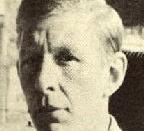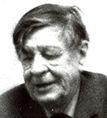Nature was a subject most frequently used by poets of the 1930s to help communicate their political views and convey the alteration of which politics created in society. Writers sought after the public to be aware of 'the clashes between Fascism and Communism, dictatorship and social democracy and 'micropolitical' concerns' , which concerned all social classes well being. To exemplify what it is meant by the above, the analysis of the following poems: "Opus 7" and "Sleek and calm..." by Sylvia Townsend Warner, "James Honeysuckle" by W.H Auden and "December Apples" by Eilund Lewis will be discussed in this essay. These poems show diverse techniques of representing the deep rooted political views the writers felt. The use of Nature in an ideological manner teamed with the seriousness of politics is an effective technique to keep the audience engaged in the poetry of these particular poets. The emotive use of the beautiful and serene nature with the devastation of war helps the writers keep the audience interested throughout the length of the poetry as many of the poems were quite lengthy.
The two main techniques that are used when writing about poetry are Pastoral and Anti-Pastoral.
Pastoral poetry is a 'term which can be applied to any work with a rural setting and that generally praises the rustic way of life' , this type of poetry is basically very idealistic about nature. Anti-pastoral poetry is opposite to this style and provides a much 'starker view of society' . I hope to find out whether this form would be most favored by the poets of the 1930s due to it being able to catch the evilness of war in a much more realistic and gruesome manner.
Politics was very important in the 1930s. there was immense social upheaval due to threats...


